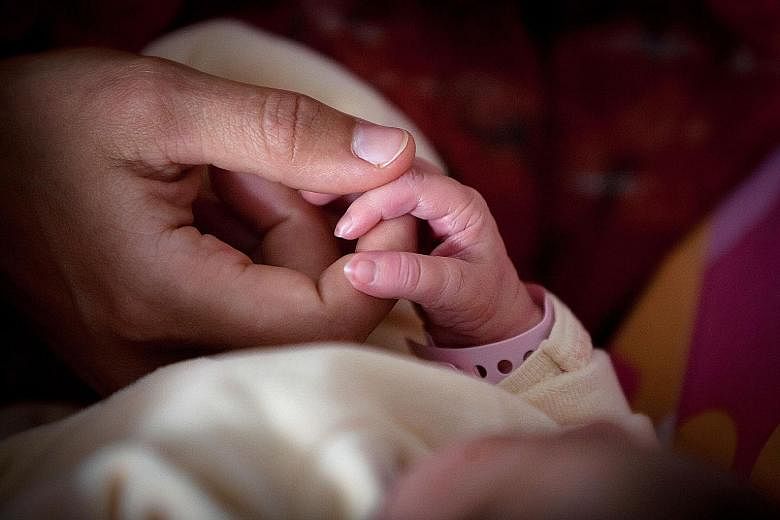LONDON • Britain granted its first licence for the genetic modification of human embryos as part of research into infertility and why miscarriages happen, in a move likely to raise ethical concerns.
"Our licence committee has approved an application from Dr Kathy Niakan of the Francis Crick Institute to renew her laboratory's research licence to include gene editing of embryos," the Human Fertilisation and Embryology Authority (HFEA) said in a statement yesterday.
It said the work carried out "will be for research purposes and will look at the first seven days of a fertilised egg's development, from a single cell to around 250 cells".
Dr Niakan has said she is planning to modify the embryos using a technique known as CRISPR-Cas90.
The embryos will not become children as they must be destroyed within 14 days and can be used only for basic research.
She plans to find the genes at play in the first few days of fertilisation when an embryo develops a coating of cells that later become the placenta.
The embryos to be used in the research are ones that would have been destroyed, donated by couples receiving in-vitro fertilisation treatment who do not need them.
The CRISPR technology has been the subject of fierce international debate because of fears that it could be used to create babies to order.
The technique can enable scientists to find and modify or replace genetic defects, and many of them have described it as "game-changing". In a research paper published in April last year, Chinese scientists described how, in a world-first, they were able to manipulate the genomes of human embryos, which raised ethical concerns about the new frontier in science.
Mr Huang Junjiu, a gene-function researcher at Sun Yat-sen University in Guangzhou, and colleagues describe how they used the CRISPR-Cas90 technique to modify the genomes of embryos obtained from a fertility clinic.
Mr David King, director of the British campaign group Human Genetics Alert, has called Dr Niakan's plans "the first step on a path... towards the legalisation of GM (genetically modified) babies".
But Dr Niakan, who has spent a decade researching human development, said she has no intention of genetically altering embryos for use in human reproduction,
She explained to the BBC earlier this year that she applied to edit human embryos because "miscarriages and infertility are extremely common, but they're not very well understood".
She has stated that her aim is to improve scientific understanding of how a healthy human embryo develops, something that could, in the long term, help to improve infertility treatments.
At a briefing for reporters in London last month, Dr Niakan said the first gene she planned to target was one called Oct4, which she believes may have a crucial role in the earliest stages of human foetal development.
Researchers were quick to hail the decision. The project should "assist infertile couples and reduce the anguish of miscarriage", Mr Bruce Whitelaw, professor of animal biotechnology at the University of Edinburgh, told the Science Media Centre.
Ms Sarah Chan from the Usher Institute for Population Health Sciences and Informatics at the University of Edinburgh, said the research "touches on some sensitive issues; therefore it is appropriate that this research and its ethical implications have been carefully considered by the HFEA".
"We should feel confident that our regulatory system in this area is functioning well to keep science aligned with social interests," she added, reported the BBC.
AGENCE FRANCE-PRESSE, REUTERS

